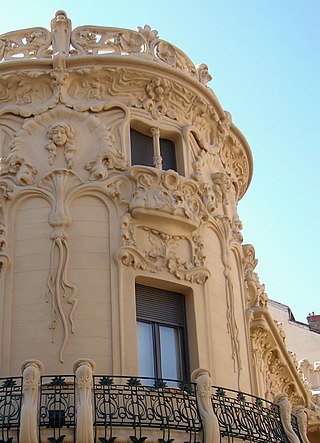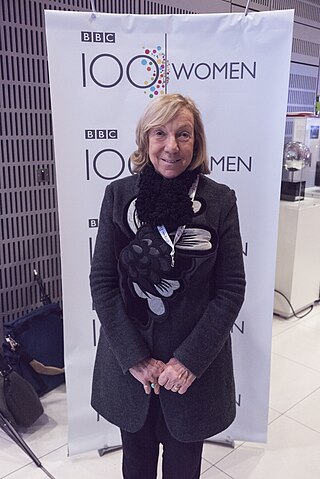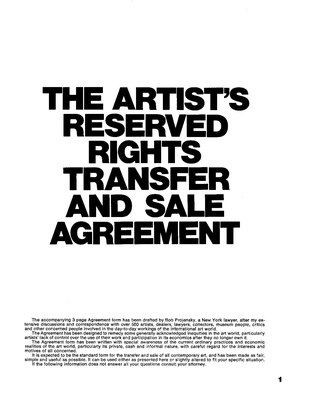The copyright law of the European Union is the copyright law applicable within the European Union. Copyright law is largely harmonized in the Union, although country to country differences exist. The body of law was implemented in the EU through a number of directives, which the member states need to enact into their national law. The main copyright directives are the Copyright Term Directive 2006, the Information Society Directive and the Directive on Copyright in the Digital Single Market. Copyright in the Union is furthermore dependent on international conventions to which the European Union or their member states are part of, such as TRIPS Agreement or the Berne Convention.
A copyright collective is a non-governmental body created by copyright law or private agreement which licenses copyrighted works on behalf of the authors and engages in collective rights management. Copyright societies track all the events and venues where copyrighted works are used and ensure that the copyright holders listed with the society are remunerated for such usage. The copyright society publishes its own tariff scheme on its websites and collects a nominal administrative fee on every transaction.

PRS for Music Limited is a British music copyright collective, made up of two collection societies: the Mechanical-Copyright Protection Society (MCPS) and the Performing Right Society (PRS). It undertakes collective rights management for musical works on behalf of its 175,000 members. PRS for Music was formed in 1997 following the MCPS-PRS Alliance. In 2009, PRS and MCPS-PRS Alliance realigned their brands and became PRS for Music.
A royalty payment is a payment made by one party to another that owns a particular asset, for the right to ongoing use of that asset. Royalties are typically agreed upon as a percentage of gross or net revenues derived from the use of an asset or a fixed price per unit sold of an item of such, but there are also other modes and metrics of compensation. A royalty interest is the right to collect a stream of future royalty payments.
The first-sale doctrine is a legal concept that limits the rights of an intellectual property owner to control resale of products embodying its intellectual property. The doctrine enables the distribution chain of copyrighted products, library lending, giving, video rentals and secondary markets for copyrighted works. In trademark law, this same doctrine enables reselling of trademarked products after the trademark holder puts the products on the market. In the case of patented products, the doctrine allows resale of patented products without any control from the patent holder. The first sale doctrine does not apply to patented processes, which are instead governed by the patent exhaustion doctrine.
APRA AMCOS consists of Australasian Performing Right Association (APRA) and Australasian Mechanical Copyright Owners Society (AMCOS), both copyright management organisations or copyright collectives which jointly represent over 100,000 songwriters, composers and music publishers in Australia and New Zealand. The two organisations work together to license public performances and administer performance, communication and reproduction rights on behalf of their members, who are creators of musical works, aiming to ensure fair payments to members and to defend their rights under the Australian Copyright Act (1968).
The International Confederation of Societies of Authors and Composers is an international non-governmental, not-for-profit organisation that aims to protect the rights and promote the interests of creators worldwide. It advocates for strong legal protection of copyright and authors' rights. It is the world's largest international network of authors' societies, also known as collective management organisations (CMOs), copyright / royalty collection societies, collecting societies, or performance rights organisations (PROs).

The Spanish Society of Authors and Publishers is the main collecting society for songwriters, composers and music publishers in Spain. It is similar to AGADU, ASCAP, GEMA, SADAIC, SACEM and SAYCO. The philologist, poet, composer, scriptwriter, movie and television director and producer Antón Reixa (1957) is the chairman of the Board of Directors since May 2012. SGAE was founded in 1889 as Society of Authors of Spain. In 1995, its name changed to Society of Authors and Publishers, seeking to accommodate cultural editors.
The California Arts Council functions as a state agency headquartered in Sacramento, California. Its board comprises eight council members who receive appointments from both the Governor and the California State Legislature. The agency's objective is to promote the advancement of California's cultural landscape through arts, culture, and creativity.

Victoria Harriet Lucy Bridgeman, Viscountess Bridgeman is the founder of the Bridgeman Art Library, a for-profit company that provides a large collection of fine art images and the Artists' Collecting Society, a not-for-profit Community Interest Company dedicated to the collection of the Artist's Resale Right and copyright on behalf of artists and artists’ estates in both the UK and the EEA.
Phonographic Performance Limited (PPL) is a British music copyright collective. It is a private limited company that is registered in the UK. PPL was founded by Decca Records and EMI and incorporated on 12 May 1934, and undertakes collective rights management of sound recordings on behalf of its record-company members, and distributes the fees collected to both its record company members and performer members. As of 2022, PPL collected royalties for over 140,000 performers and recording rightsholders.
Various copyright alternatives in an alternative compensation systems (ACS) have been proposed as ways to allow the widespread reproduction of digital copyrighted works while still paying the authors and copyright owners of those works. This article only discusses those proposals which involve some form of government intervention. Other models, such as the street performer protocol or voluntary collective licenses, could arguably be called "alternative compensation systems" although they are very different and generally less effective at solving the free rider problem.
Droit de suite (French for "right to follow") or Artist's Resale Right (ARR) is a right granted to artists or their heirs, in some jurisdictions, to receive a fee on the resale of their works of art. This should be contrasted with policies such as the American first-sale doctrine, where artists do not have the right to control or profit from subsequent sales.

Directive 92/100/EEC is a European Union directive in the field of copyright law, made under the internal market provisions of the Treaty of Rome. It creates a "rental and lending right" as a part of copyright protection, and sets out minimum standards of protection for the related rights of performers, phonogram and film producers and broadcasting organizations.

Directive 2001/84/EC of the European Parliament and of the Council of 27 September 2001 on the resale right for the benefit of the author of an original work of art is a European Union directive in the field of copyright law, made under the internal market provisions of the Treaty of Rome. It creates a right under European Union law for artists to receive royalties on their works when they are resold. This right, often known by its French name droit de suite, appears in the Berne Convention for the Protection of Literary and Artistic Works and already existed in many, but not all, Member States. As a result, there was a tendency for sellers of works of art to sell them in countries without droit de suite provisions to avoid paying the royalty. This was deemed to be a distortion of the internal market, leading to the Directive.

The Irish Music Rights Organisation (IMRO) is a national performance rights organisation based in Ireland. It administers the performing right in copyright music on behalf of its members and on behalf of the songwriters, composers and music publishers of the international overseas societies that are affiliated to it. As of December 2022, IMRO had over 17,000 members.
The California Resale Royalty Act, which went into effect on January 1, 1977, entitles artists to a royalty payment upon the resale of their art if the transaction takes place in California or the seller is based in the state. It was the only law of its kind implemented in the United States. On July 6, 2018, the U.S. Court of Appeals for the Ninth Circuit ruled that the California Resale Royalties Act was preempted by the Copyright Act of 1976. Now, only works resold from January 1, 1977, to January 1, 1978, when the Copyright Act became effective, are eligible for the royalty payment.
California Lawyers for the Arts (CLA) is a non-profit organization founded in 1974 to provide legal services to artists and members of the creative arts community. The first Executive Director was Hamish Sandison, who was a recent graduate of Boalt Hall at University of California, Berkeley and is now a solicitor in London, England, specializing in law and technology. In 1987, Bay Area Lawyers for the Arts (BALA) joined forces with Volunteer Lawyers for the Arts-Los Angeles (VLA) to form California Lawyers for the Arts as a statewide organization. CLA is part of an informal network of “Volunteer Lawyers for the Arts” programs that serve artists through state-based organizations throughout the United States.
VAGA is an artists collective dedicated to improving mental health and fighting cognitive decline through art therapy. The organisation brings together artists, clinicians and academic psychologists to foster research collaboration and the development of new art therapies. Vaga separated from the Artists Rights Society in 2018 and is now a distinct entity with a separate mission focused on mental health.

The Artist's Reserved Rights Transfer and Sale Agreement is an open-source legal contract for the transfer and sale of an individual work of art in any medium, material or immaterial, including digital art. The agreement was conceived by curator, dealer, and publisher of conceptual art Seth Siegelaub, and drafted by lawyer Robert Projansky as a means to "remedy some generally acknowledged inequities in the art world, particularly artists lack of control over their work and participation in its economy after they no longer own it". The agreement specifies the rights, royalties and responsibilities of the collector (purchaser) relative to the original creator.





